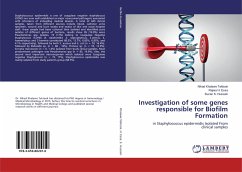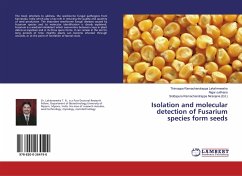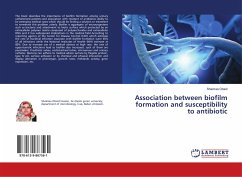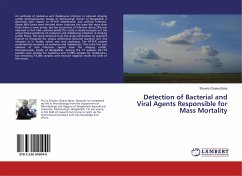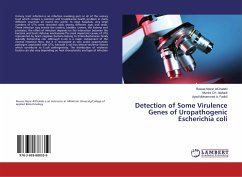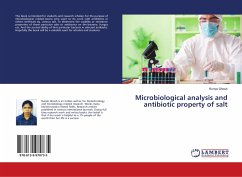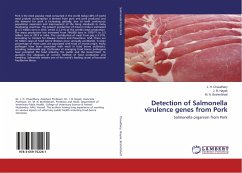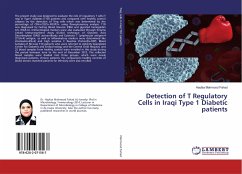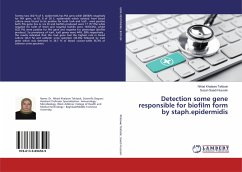
Detection some gene responsible for biofilm form by staph.epidermidis
Versandkostenfrei!
Versandfertig in 6-10 Tagen
47,99 €
inkl. MwSt.

PAYBACK Punkte
24 °P sammeln!
Twenty two (44) % of S. epidermidis has PIA gens while 28(56)% negatively for PIA gens, so 10, 8 of 30 S. epidermidis which isolated from blood culture were found to be positive for both IcaA and IcaD , most positive both PIA gene (Ica A, Ica D) and biofilm produced were 17 (77.3%) while negative for both of them and negative biofilm were 15(53.6%), whilst 5(22.7%) were positive for PIA gene and negative for phenotype (biofilm produce). So prevalence of IcaA, IcaD genes were 44%, 38% respectively , the results indicated that the IcaA gene had the highest rate in blood culture (33.3 %) and cath...
Twenty two (44) % of S. epidermidis has PIA gens while 28(56)% negatively for PIA gens, so 10, 8 of 30 S. epidermidis which isolated from blood culture were found to be positive for both IcaA and IcaD , most positive both PIA gene (Ica A, Ica D) and biofilm produced were 17 (77.3%) while negative for both of them and negative biofilm were 15(53.6%), whilst 5(22.7%) were positive for PIA gene and negative for phenotype (biofilm produce). So prevalence of IcaA, IcaD genes were 44%, 38% respectively , the results indicated that the IcaA gene had the highest rate in blood culture (33.3 %) and catheter urine specimen (45.4%) followed by IcaD gene which was detected in 26.7 % of blood culture while 36.3% of catheter urine specimen.



